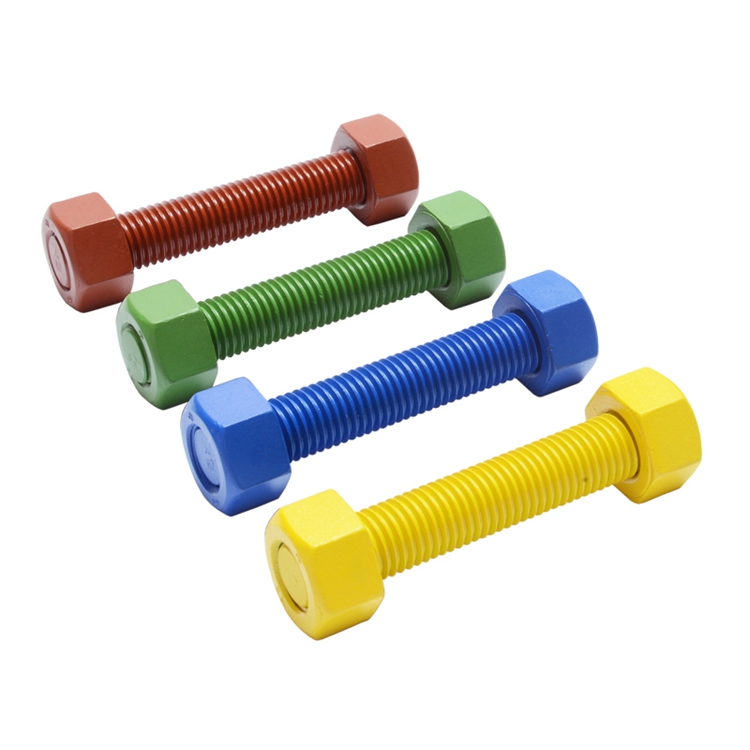washers
Jan . 06, 2025 15:59 Back to list
washers
Washers are an essential component in various industries, from automotive and aerospace to home appliances and plumbing. Understanding the intricacies of these small but mighty components is vital for anyone looking to purchase, use, or manufacture washers effectively.

Experience in using washers reveals their indispensable role in ensuring the security and reliability of mechanical assemblies. For instance, in home plumbing systems, washers prevent leaks by providing a tight seal, showcasing their utility in everyday applications. Professionals who have dealt with household repairs often stress the importance of selecting the right washer type for specific tasks. Whether it's a rubber washer for a sink tap or a metal one for a bathroom fixture, each choice can significantly impact the system's longevity and efficiency.
To delve deeper into their expertise, it's crucial to recognize the various types of washers available. Flat washers are most commonly used to distribute load and prevent damage to surfaces during the tightening of fasteners. Lock washers, on the other hand, are designed to prevent nuts and bolts from unscrewing under vibration and torque. Specialist industries may require custom washers made from unique materials such as copper or titanium to withstand extreme conditions.

Expertise in this domain often focuses on material selection. The choice between stainless steel, rubber, nylon, or other composites hinges on understanding their properties and respective applications. Stainless steel washers are renowned for their corrosion resistance, making them ideal for marine and outdoor environments. Rubber washers offer excellent sealing properties and are often employed in fluid or gas interfaces.
washers
Authoritativeness in the field of washers comes from a rich understanding of both historical development and modern advancements. Historically, washers have evolved from simple metal discs to sophisticated components engineered to meet specific industrial needs. Today's market offers an impressive range of washers that meet global standards, such as ISO or ANSI, which codify dimensions, materials, and tolerances. These standards ensure that washers perform optimally in various applications, providing users with a reliable benchmark for quality and performance.
Trustworthiness in a discussion about washers is established through a commitment to quality assurance and adherence to industry standards. Manufacturers often employ rigorous testing methods to ensure their washers meet the required specifications. Thermal cycling tests, for instance, assess a washer's ability to maintain its integrity under fluctuating temperatures, a critical factor in automotive or aerospace applications. Companies with ISO 9001 certification demonstrate their commitment to quality management principles, further bolstering trust among consumers.
Furthermore, industry leaders frequently collaborate with research institutions to innovate washer design and materials, addressing emerging challenges in engineering and technology. These collaborations ensure that the knowledge base surrounding washers continually expands, incorporating the latest findings and technological advancements.
In conclusion, washers, though small, play a pivotal role in the functionality and safety of countless systems. Professionals equipped with experience, expertise, authoritativeness, and trustworthiness can navigate the myriad choices available, ensuring that they select the right washer for their needs. This meticulous selection process not only enhances operational efficiency but also prolongs the lifespan of the systems they support. As industries continue to evolve, so too will the designs and materials of washers, cementing their place as a cornerstone component in engineering and technology.
Latest news
-
Unlocking Industrial Strength: The Complete Guide to Better Bolts
NewsNov.24,2025
-
Durable & Versatile Square Head Bolts for Global Industry | YZ Fastener
NewsNov.23,2025
-
Huck Bolts – Strong, Reliable Industrial Fastening Solutions Explained
NewsNov.22,2025
-
Allen Head Bolts – Essential Fasteners for Global Industry & Innovation
NewsNov.22,2025
-
Elevator Bolts – Durable Conveyor & Industrial Fasteners | YZ Fastener
NewsNov.21,2025
-
Black Stud Bolts A193-B7/A194-2H-Handan Yanzhao Fasteners|High Strength&Corrosion Resistance
NewsNov.21,2025
